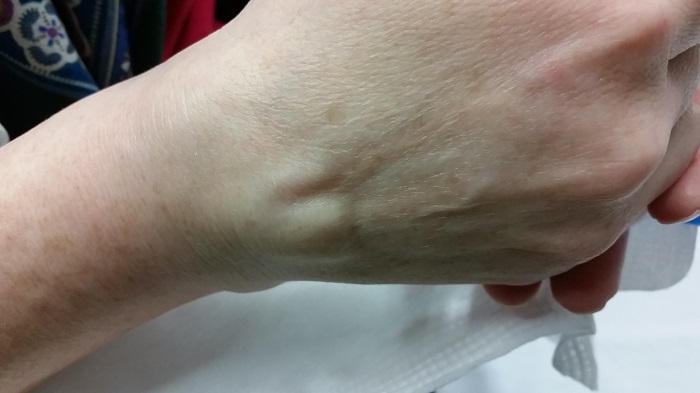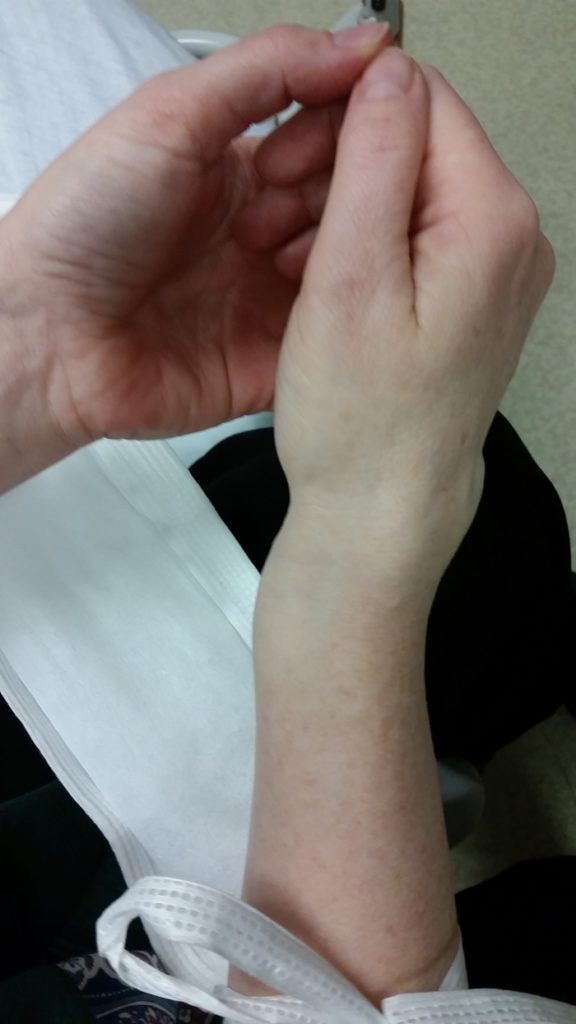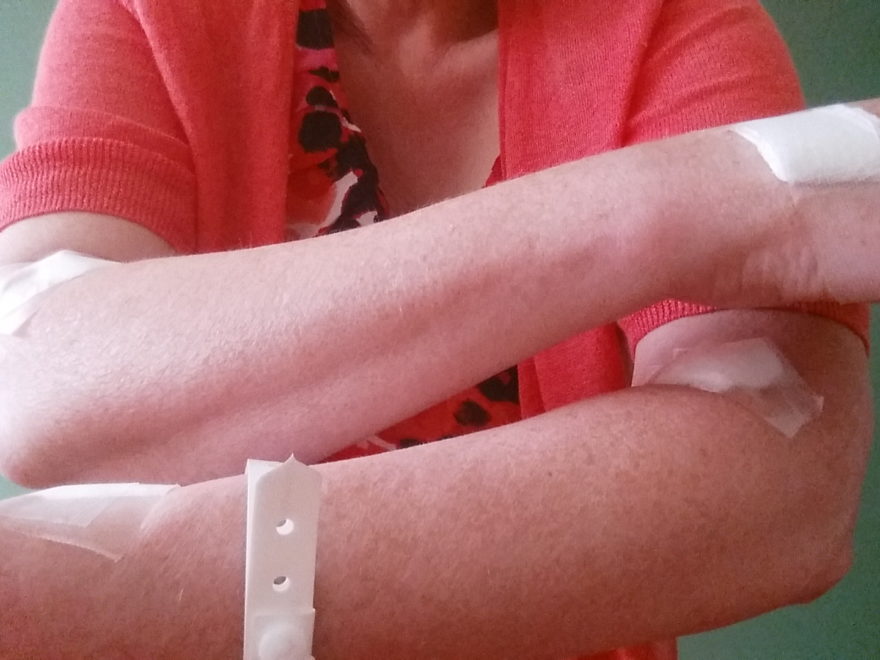I’m in shock. I’ve just been told that I’m no longer an outpatient at the community hospital at which I’ve been treated since March. First for a Colles’ fracture (a distal radius fracture, or broken arm near the wrist), and then – once I was finally diagnosed – for a rare disease.
This rare condition is Complex Regional Pain Syndrome (CRPS), also often known by its old name; Reflex Sympathetic Dystrophy or (RSD). It was triggered by the Colles’ fracture, although no one knows why this type of injury seems to sometimes trigger this disease.
My official treating physician at this hospital is the orthopaedic surgeon to whom I was assigned for follow-up care, after the fracture. But the physician who’s been treating me for CRPS is a neuro-anesthesiologist at the same hospital.
Today I had a follow-up appointment with the orthopaedic surgeon, for what I expected would be a regular update on my care. Instead, my now-former treating physician advised me that there was nothing else that this community hospital could offer me as treatment for CRPS. So they were releasing me from follow-up care at the hospital. Flushed out like a piece of…
As of this appointment, I’d no longer be an outpatient at this hospital. No physician at the hospital would be treating me, or following up with me. Because of this, my medication plan – which my neuro-anaesthesiologist and I had developed together, after multiple medication failures (including numerous combinations of medications) – would also end.
Once I’d finished the medications I had left, from the last prescription written by the neuro-anesthesiologist, I’d have no treatment at all. To be clear, I’m not taking any opioids; this isn’t a story about a patient being cut off from that type of medication.
The neuro-anesthesiologist at this hospital couldn’t keep treating me for pain, if the original treating physician (who’d referred me to the neuro-anesthesiologist) discharged me from ambulatory care… That was it for me, the end of my road as a patient at this hospital. But I still had the rare disease!
I live in a suburban area of a large city which has not just one, but two, medical schools and multiple associated hospital centres. The no-longer-treating-me physician didn’t even offer to refer me to a larger hospital, until I somewhat incredulously asked: “What do I do next? How will I keep working, without any treatments?…”
His response was an off-the-cuff:
You know what you have is serious, right?”
I may not have the exact words; this is what I remembered by the time I got home and told my husband a few minutes later. I was stunned. And thinking to myself: “Yes, I know it’s serious. That’s why I’m so surprised that you’re just releasing me as a patient, with no treatment plan!!!”

Still at the hospital, I managed to recover enough from his comment to ask about the possibility of a referral to another healthcare centre or hospital. He finally – and somewhat reluctantly, it seemed – gave me a referral to a pain clinic at a much larger hospital.
But he didn’t offer to contact that hospital, or even to fax in the referral form. [Yes, we still uses faxes in healthcare here!] So now I’ll have to deal with another hospital – by myself. I have no idea how long it will take to be seen there, or whether they’ll even accept me as a patient. I’ve been told that the two hospital pain clinics in the city both have long waiting lists.
So the next little while should be very interesting, once I’ve finished my current prescriptions. To understand the level of pain I’m living with, consider that I’ve been vomiting from pain every few hours. Always interesting, when your workplace is carpeted! I really can’t imagine how I’ll deal with this pain, without the medications I’ve been taking…
Somehow this just doesn’t seem right. Why couldn’t the orthopaedic surgeon, at my local hospital, keep me as a follow-up patient until my rare disease case could be taken on by the other hospital? He couldn’t, or wouldn’t, even answer that question.
Like much of my experience with this particular doctor (read Google this for an example), his attitude and approach seemed to be dismissive and flippant – bordering on disrespectful.
From my bioethics perspective, this simply isn’t acceptable. From my current patient perspective, it was all I could do to get out of the hospital – to my car – before bursting into tears. I didn’t even cry when I snapped the bone in my wrist; instead I drove myself home with a broken arm. I don’t cry easily, but this attitude – this entire situation – brought me to tears.


